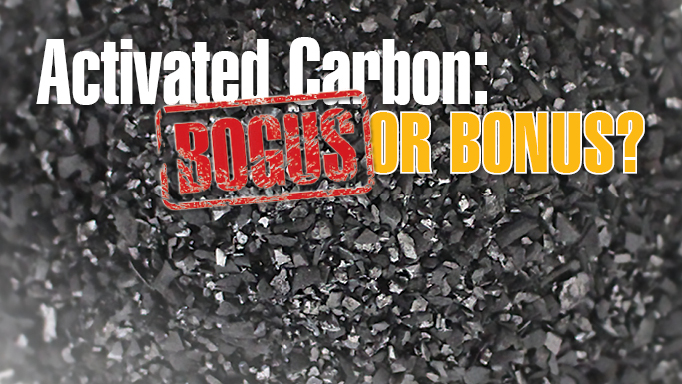Interest in activated carbon or charcoal has experienced somewhat of a revival in recent years. It is principally touted to absorb toxins within the GI tract, leading to better coat health and fewer problems such as colic and stomach ulcers. Unfortunately, there has been very little research or testing done to prove efficacy or safety in animals. There are also no examples or lists of what ‘toxins’ these supplements are supposed to absorb.
Activated carbon is a form of carbon that has been processed to have very small pores. These pores increase the overall surface area of the molecules. Activated carbon is used commercially in applications such as air filtration, water filtration, decaffeination and even medicinal uses. If you’ve ever had a dog eat something it shouldn’t, the vet may prescribe activated carbon/charcoal to absorb the poisonous material that the dog has ingested. The high surface area of the carbon makes it an ideal substance for absorbing harmful chemicals.
It is important to note here that this is probably where the claims of absorbing toxins within the GI tract have been used to market activated carbon products for everyday use. Activated carbon has been shown to absorb aspirin, acetaminophen, digoxin, theophylline, and tricyclic antidepressants; however, it is quite unlikely that your horse will ever ingest these substances.
There have been studies conducted to investigate the absorptive qualities of natural toxins such as mycotoxins. One study in particular investigated if activated carbon prevents absorption of fumonisins in pigs (fumonisins are a mycotoxin found mostly in corn-based feeds which can cause neurotoxicity and hepatotoxicity in the horse). In pigs, this toxin causes pulmonary edema. In the study, pigs that were fed a control diet (a diet with fumonisins) and pigs that were fed a diet with the fumonisins plus activated carbon showed no difference in level of pulmonary edema, suggesting the carbon did not absorb the toxin effectively. In fact, lesions on the pigs’ livers, intestines, spleens, and lymph nodes were actually worse in the group of pigs fed a diet with activated carbon.
Unfortunately, this study is one of only a few studies done to test the efficacy of feeding activated carbon as a way to absorb toxins, and it is only centered around only one problematic substance. The lack of information makes it very difficult for veterinarians to promote these supplemental products.
Aside from the efficacy of these products to absorb toxins, problematic side-effects can also arise. The main side-effect of feeding activated carbon as a supplement is constipation. In horses, constipation is also known as an impaction or impaction colic, which arises when there is not enough water within the intestines of the animal and feed particles (usually hay) form an obstruction and fecal material cannot pass. This condition requires veterinary treatment and can sometimes require hospitalization of your horse.
In humans, activated carbon has also been shown to actually absorb enzymes within the GI tract. Enzymes are natural molecules in the body which act as catalysts for many reactions including digestion and absorption of nutrients. Absorption of these enzymes by the carbon could possibly inhibit digestion of the hay and feed you are giving to your horse.
In conclusion, activated carbon supplements have not been appropriately tested for safety or efficacy within the horse. It is important to understand supplements as a whole are not regulated, and don’t fall under the same rigorous testing as veterinary medication by the FDA. Because of this, do your research before buying such products and talk to your vet to make sure that any supplements you are giving your horse won’t affect any other current medication it has been prescribed.

